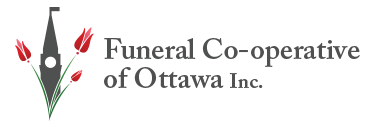Talking to children about war. I was wondering what I could say to my ten-year-old granddaughter (whose mother is Russian born ŌĆō just to add a twist to the problem) about the war. Saying nothing isnŌĆÖt an option, because the topic will come up, sooner or later. Being a grandfather, my duty is to impart something helpful.
Then I wondered what parents in Ukraine are telling their ten-year-old children. I found this┬Āarticle from the BBC, about exactly that. But they are in the thick of it, their concerns more practical. I was wondering about sowing seeds of hatred. Because our brains are pattern-matching machines, my thoughts went into my memory banks in search of meaningful matches to the pattern.
I remembered a story that my father told me. He was about 17 or 18, in the midst of the Warsaw uprising. After yet another bombardment, he stood on a pile of rubble to survey the damage. A young boy (here my imagination contributes the idea that he is age ten) starts yelling at my father to ŌĆ£Stop! Stop!ŌĆØ Puzzled, my father looks at him yelling and gesturing. The boy is pointing at something in the pile of rubble.
Then he says, ŌĆ£You are standing on my father!ŌĆØ. Horrified, my father, mumbling apologies, came down off the┬Āde facto┬Āgravesite. While telling of that story, my father (in his 70s at the time) actually displayed the corner of a teardrop, and his voice cracked a bit: the most powerful display of genuine emotion I ever saw from him.
He was one of the millions who were emotionally scarred from the ravages of war. But he did not hate the German people, nor did he hate the Russian people. I hold no animosity towards those invaders of my fatherŌĆÖs country, and murderers of my family. How did my traumatized father manage to do that little bit of excellent parenting?
DonŌĆÖt sow seeds of hatred. The invasion of Ukraine has galvanized the world and woken people everywhere to the preciousness of peaceful co-existence. In a┬Ārecent interview with Yuval Noah Harari, he said that PutinŌĆÖs legacy was that he was ŌĆ£sowing seeds of hatredŌĆØ that will last for generations to come. It was a great interview, but I do not agree with that particular conclusion of his. Why not? Because of my father.
I can see how that can happen. We have seen those seeds be planted, sprouted, and grown to maturity in the years since the invasion of Iraq. But what about my fatherŌĆÖs case? What made him impervious to hatred? After the war, he made his way across Europe, where he encountered ordinary German people. They had obviously been struggling and suffering through the ordeal. And his friends were broad-minded enough to have conversations about their experiences, as opposed to regressing to a primitive ŌĆ£all or nothingŌĆØ, ŌĆ£black and whiteŌĆØ mode of thinking.
When I was about 13 years old, my father told me that when he was a new immigrant to Canada, he shared an apartment with some Polish friends. In their bathroom, they had two portraits. One was of Adolph Hitler, and the other was of Josef Stalin. Both were hanging upside down over the bowl, as a constant reminder of what they thought about those two people. He said, ŌĆ£I blame Hitler and Stalin for wrecking my country and my lifeŌĆØ. He went on to specify that he had no problem with either the German or Russian people.
Perspective is everything
Or, as I like to say, ŌĆ£distance is the essence of healingŌĆØ. In telling the story about the two portraits hanging in the bathroom, and confirming his positive regard for ordinary people, a valuable lesson was imparted. President Zelensky referred to the Russian invaders as ŌĆ£confused childrenŌĆØ ŌĆō and he was quite accurate. Many are young conscripts with no idea of the grand schemes of Putin that they are caught up in.
The more we can step back from the immediate emotional surges, sift through the misinformation, and assess the facts, the more easily we can see a way through the mess, even take sides, yet not give in to hatred and despair. At times like this, we are called upon to take sides. Even the neutral Swiss took action. As we do so, in defense of peaceful co-existence, we can take care to impart safe messages to our children.
Ideally, we step back and adopt a global perspective, because we have other urgent matters to attend to, such as climate disruption, ecocide, and pollution. Taking the long view promotes mental health.
Michael Gintowt. MA (Psychology) ┬Āis a practicing therapist specializing in counselling with men and boys.
Information about the author can be found on https://bcmen.net/
